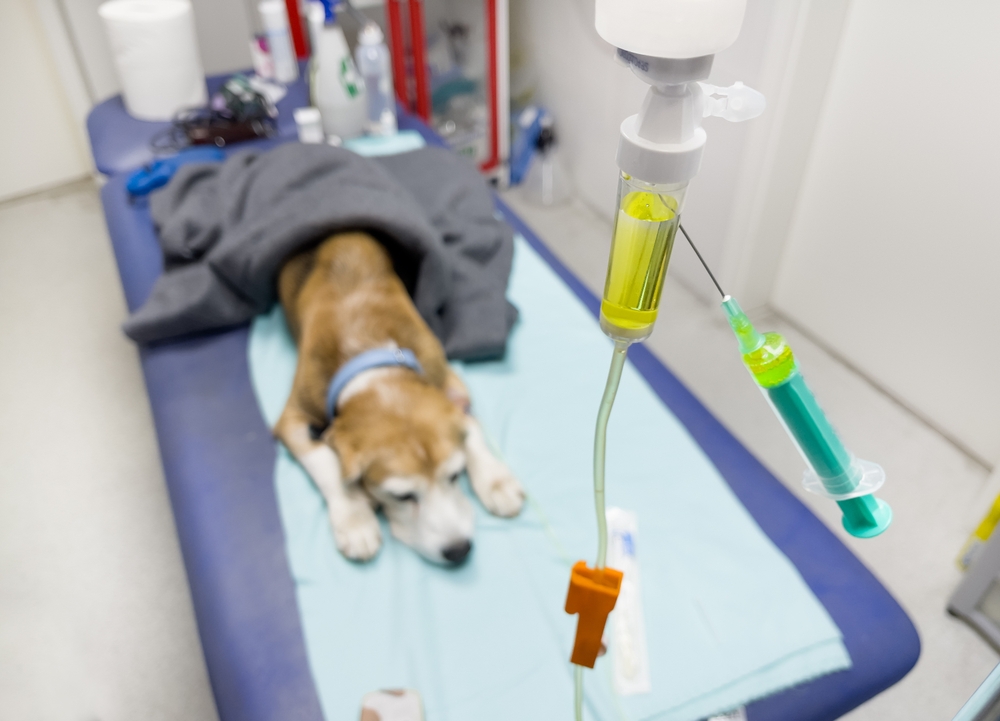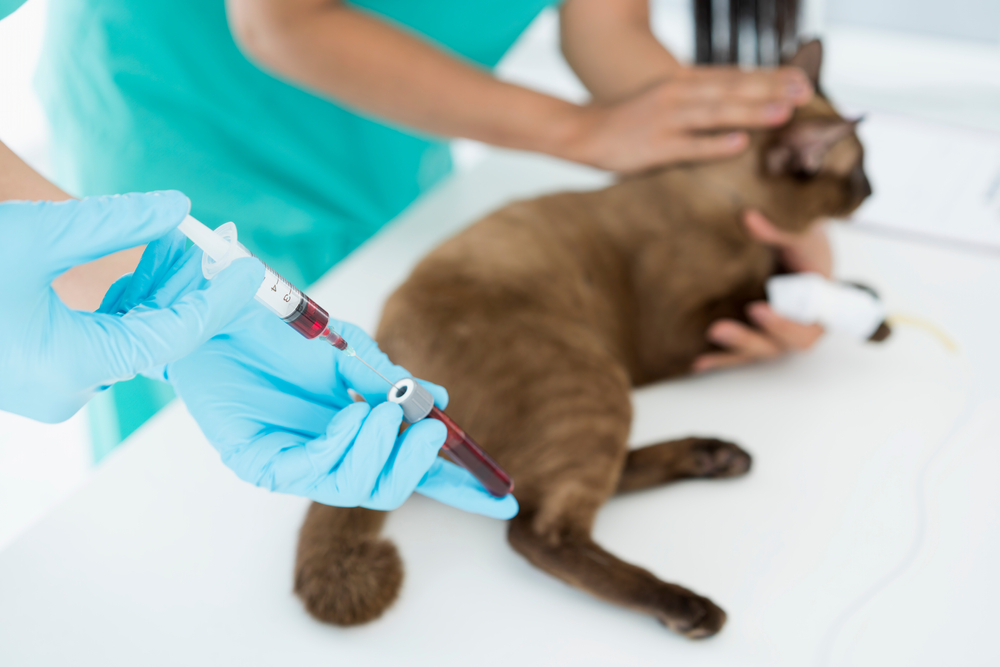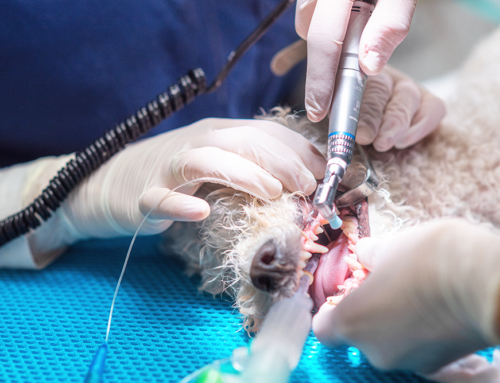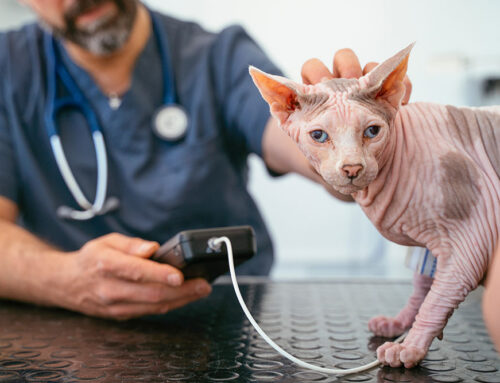Chronic kidney disease (CKD) is a common condition that can significantly impact your pet’s quality of life (QOL), and screening tests are important to detect CKD in the early stages—when the condition is easier to manage. Our Willow Wood Animal Hospital team provides four reasons why your pet should be screened for CKD.
#1: Pets can’t live without their kidneys
The kidneys play an important role in several body processes, and if they don’t function properly, your pet can suffer life-threatening consequences. Some critical kidney functions include:
- Removing toxins — The kidneys are made of filtering units that remove metabolic waste and decontaminate the blood.
- Conserving water — The kidneys work to keep your pet hydrated. When your pet is dehydrated, their kidneys conserve water by producing more concentrated urine. When your pet drinks too much water, their kidneys efficiently remove the excess water to prevent blood dilution.
- Producing red blood cells (RBCs) — The kidneys produce the hormone erythropoietin, which signals the bone marrow to make RBCs when necessary.
- Regulating blood pressure — Sensors in the kidneys help regulate blood pressure, preventing fluctuations.
- Conserving protein — Proteins are important for numerous body functions, and the kidneys help prevent protein loss in the urine.
- Balancing pH — The kidneys regulate blood pH, keeping the level balanced in the narrow range necessary to enable metabolic processes to occur.
- Balancing electrolytes and minerals — The kidneys help balance electrolytes, such as sodium and potassium, and minerals, such as calcium and phosphorus.
#2: Chronic kidney disease is common in pets
CKD is a major cause of pets’ illness and death, especially in older dogs and cats. The condition leads to a progressive kidney function loss that can be caused by issues such as high blood pressure, infection, immune-mediated disorders, and secondary to acute kidney disease. In most cases, a pet’s underlying CKD cause cannot be determined. Pets don’t typically exhibit early-stage CKD signs, but as their condition progresses, potential signs include:
- Increased thirst and urination — In CKD, the kidneys lose their ability to conserve water, and an affected pet’s body cannot concentrate urine. This means a pet must drink more water to process their body’s waste materials. Excessive water consumption is an important CKD warning sign.
- Inappetence, nausea, and vomiting — When toxins build up in the bloodstream, the brain is triggered, causing an affected pet to experience nausea and vomiting. In addition, pets who have CKD often have increased stomach acid, which can also lead to inappetence, nausea, and vomiting.
- Weight loss — CKD can cause a pet to experience a reduced appetite, and hormonal and metabolic factor changes that result in weight loss.
- Anemia — When the kidneys don’t produce erythropoietin, the bone marrow doesn’t produce RBCs, leading to anemia.
- Depression — Waste product accumulation in the bloodstream leads to lethargy and depression.
- High blood pressure — Damaged kidneys lose their ability to regulate the body’s blood pressure, frequently causing hypertension. This can cause retinal damage, leading to blindness.
#3: Pets tend to hide vulnerabilities
Your pet may be far removed from their wild ancestors, but they still retain their instinctive behaviors that cause them to hide vulnerabilities, because an animal who appears weak in the wild becomes a hungry predator’s lunch. An ill pet frequently hides disease signs until their condition is advanced, negatively impacting their prognosis. When our Willow Wood Animal Hospital team performs screening tests during your pet’s routine wellness exams, we are able to detect conditions, such as CKD, in the early stages—when they are easiest to manage, helping add years to your pet’s life and improving their QOL. Our veterinary team uses the following CKD screening diagnostics:
- Complete blood count (CBC) — A low RBC count may indicate your pet has CKD.
- Biochemistry profile — The kidneys help control many of the blood’s biochemical levels. Several biochemistry profile parameters are useful in diagnosing CKD:
- Blood urea nitrogen (BUN) — The body’s protein metabolism produces BUN—a waste product the kidneys should remove. High BUN values may indicate CKD.
- Creatinine — The body’s muscle function produces creatinine—a waste product the kidneys normally remove. High creatinine values typically indicate CKD.
- Phosphorus — Elevated phosphorus levels may indicate CKD.
- Symmetric dimethylarginine (SDMA) — Your veterinarian will likely recommend that your pet undergo an SDMA test, which is more sensitive to kidney function loss than measuring BUN and creatinine levels alone. An SDMA test can detect mild to moderate kidney function loss, enabling your veterinarian to diagnose and treat your pet’s CKD at an early stage. In contrast, BUN and creatinine levels do not rise until about 75% of kidney tissue has been damaged, delaying treatment.
- Urinalysis — A dilute urine specific gravity may indicate CKD
#4: Chronic kidney disease treatment for pets is complex

When your pet’s CKD is diagnosed early and managed appropriately, your furry pal can have a good QOL for many years. However, CKD treatment can be complex, involving a multimodal approach, especially in the later stages. CKD treatment strategies include:
- Hydration — Pets must remain hydrated, and if they don’t drink enough water on their own, weekly or daily fluid therapy may be necessary.
- Nutrition — Prescription diets that are low in protein and phosphorus are typically beneficial to pets with CKD.
- Potassium supplementation — Pets with CKD often lose potassium in their urine, resulting in weakness. They require potassium supplementation.
- Phosphate binders — A calcium and phosphorus imbalance can cause your pet’s body to accumulate phosphorus. Your pet may need phosphate binders to prevent absorption from the intestine.
- Hypertension medication — If your pet’s blood pressure is elevated, your veterinarian may prescribe hypertension medications.
- Anti-nausea medications — To activate your pet’s appetite, your veterinarian may prescribe anti-nausea medications and appetite stimulants.
To ensure your furry pal has a good prognosis, regular screening tests are important to detect your pet’s CKD as early in the disease process as possible. Help ensure your furry pal lives a long, healthy life by scheduling your pet’s CKD screening test along with their routine wellness visit with our American Animal Hospital Association-accredited Willow Wood Animal Hospital team.






Leave A Comment